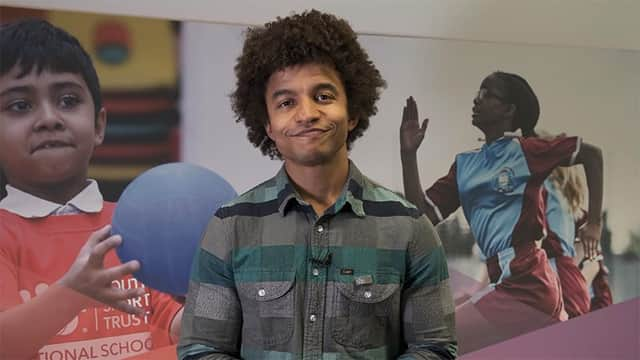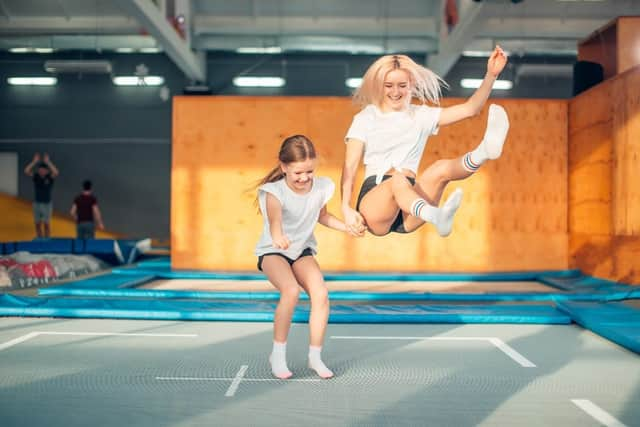More must be done to champion PE and school sport's value for children - warns report


Back in the early noughties Nelson Mandela delivered a speech – the words which would outlive their father.
“Sport has the power to change the world,” he told the inaugural Laureus World Sports Awards.
Advertisement
Hide AdAdvertisement
Hide Ad“It has the power to inspire. It has the power to unite people in a way that little else does. It speaks to youth in a language they understand. Sport can create hope where once there was only despair. It is more powerful than governments in breaking down racial barriers. It laughs in the face of all types of discrimination.”
More than two decades and a pandemic later, Mandela’s message is no less relevant, especially to the legions of young people whose lives were railroaded by lockdowns.
Arguably, there has never been a greater need and opportunity to place physical activity and well-being at the heart of education – for the benefit of the individual as well as the common good.
Yet children risk becoming increasingly disengaged from physical activity over the next decade unless more is done to champion the value of PE and school sport – especially among the most disadvantaged– according to a recent report published by the Youth Sport Trust.


Advertisement
Hide AdAdvertisement
Hide AdThe study, ‘The Class of 2035: How sport can empower a generation,’ warns of significant inequalities in young people’s engagement with sport and exercise, particularly among those from poorer backgrounds.
Youth Sport Trust ambassador, TV personality Radzi Chinyanganya, said that no child should be denied the transformative power of sport.“Whilst sport may be a universal language, it isn’t always a cheap one to learn,” he said. “Despite this the benefits of doing it aren’t just for the individual, they’re shared too. As are the costs of not doing it.”
Vehicle for change
Sport can indeed be a great vehicle for change and personal development but you have to be able to catch a ride in the first place.
The study, carried out by Foresight Factory, set out how a generation’s engagement with PE and school sport could evolve between now and 2035. It builds on the findings of the Youth Sport Trust’s original Class of 2035 report published in 2015.
Advertisement
Hide AdAdvertisement
Hide AdAccording to the latest research, children from poorer backgrounds are the least confident being active. Fifty-one percent of 11 to 16-year-olds in the D and E socioeconomic groups rated themselves as confident taking part in physical activity, compared to 75 per cent in the A and B socioeconomic groups.
Young people from poorer backgrounds were the most likely to agree that their school teacher or sports coach inspires them to be active and much less likely to say the same about their dads.
Benefits
The research found that young people’s awareness of the benefits they should get from PE and physical activity is in decline.
And it calls for young people to be given a greater say in provision, and more opportunities to lead sport among their peers.
Advertisement
Hide AdAdvertisement
Hide AdIt found that children increasingly want to see sporting activity led by their peers and this is especially important for young people with disabilities.
The study concludes that if more young people recognise the benefits of sport and play, and are empowered to lead and influence its delivery, this could not only drive-up participation and improve their health but also contribute to social mobility and foster a greater sense of belonging.
"A new and better normal"
“Following the huge disruption of the past 18 months, we have a unique opportunity to create a new and better normal for young people,” said Ali Oliver, chief executive of the Youth Sport Trust. “One which empowers young voices and harnesses the power of sport to improve lives and drive social change. However, there is a risk that things could go the other way.
“Even before COVID-19, far too many young people were inactive and disengaged from sport. National lockdowns and school closures exacerbated inactivity and inequalities which meant that play and sport were less likely to be making a positive contribution to the lives of young people who were disabled, from ethnically diverse communities or less affluent backgrounds. Left unchecked, these inequalities will grow further.”
Advertisement
Hide AdAdvertisement
Hide AdThe research comes at a time when fewer than half of young people are physically active for the average 60 minutes per day recommended by the chief medical officer.Encouragingly, however, the Youth Sport Trust’s research found that the proportion of young people in the UK claiming they wanted to do more sport and exercise had risen from 44 per cent in 2014 to 54 percent by 2020.
The report recommends refocusing the school curriculum to put the promotion of well-being on an equal setting to academic achievement.